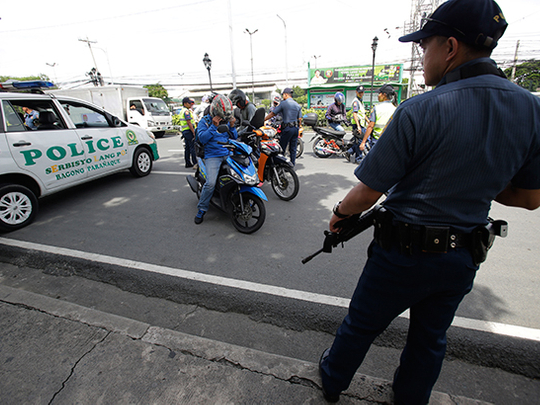
Manila: The presidential palace on Tuesday allayed fears over President Rodrigo Duterte’s declaration of a “state of national emergency” amid apprehensions that the announcement is a precursor for placing the entire country under martial law.
“Filipinos could go on with their daily lives as they normally do,” Executive Secretary Salvador Medialdea said, adding that one of the few things that would be different following the President’s declaration is that there would be more soldiers in the streets.
“There would be heightened visibility of soldiers as they are under orders to assist the police force in some areas to man checkpoints,” he said.
Early on Monday evening, Duterte declared the country under a state of national emergency as he cited the prevalence of “lawless violence”.
Prior to this order, the President had announced on Friday that the Philippines is under a “state of lawlessness”, after a bomb blast killed 14 people and injured 70 in Davao City’s night market in Roxas district.
The blast occurred amid an upsurge in drugs-related violence in various parts of the country as Duterte pressed on with the campaign against illicit substance and the people who deal in it.
Authorities had said that there are already more than three million Filipinos hooked to drugs and something must be done about it to reverse its destructive effect on the individual and the people around them.
“I have a duty to protect the country and keep the integrity of the nation intact,” Duterte had said on Friday.
'No Martial Law'
On Monday, the President took his “state of lawlessness” declaration a step further by ordering the country under emergency “on account of lawless violence”.
Medialdea said that while the President had ordered the military to assist the police in enforcing check points and other security duties, there is no martial law.
“We would not see soldiers conducting patrols and we would not see tanks in the streets. President Duterte does not like those things. He just wants to address the problem on lawless violence in a civil way,” Medialdea said during an interview with radio station dzMM.
As stated in the declaration, Duterte’s order particularly addresses the lawless violence in Mindanao.
“Mindanao has had a long and complex history of lawless violence perpetrated by private armies and local warlords, bandits and criminal syndicates, terrorist groups, and religious extremists.
“In recent months, there has been a spate of violent and lawless acts across many parts of southern main island, including abductions, hostage-takings and murder of innocent civilians, bombing of power transmission facilities, highway robberies and extortions, attacks on military outposts, assassinations of media people and mass jailbreaks"
Duterte said that under the Constitution, the president could order the military to prevent or suppress violence.
“As President of the Republic of the Philippines … I hereby proclaim a state of national emergency on account of lawless violence, and hereby command the Armed Forces of the Philippines and the Philippine National Police to undertake such measures as may be permitted by the Constitution and existing laws to suppress any and all forms of lawless violence in Mindanao and to prevent such lawless violence from spreading and escalating elsewhere in the Philippines, with due regard to the fundamental civil and political rights of our citizens,” he proclaimed.
The declaration was not the first.
In 2009 then President Gloria Macapagal-Arroyo placed the province of Maguindanao under the state of emergency following an upsurge in political violence that resulted in the massacre of 58 people, 34 of whom were media workers.











